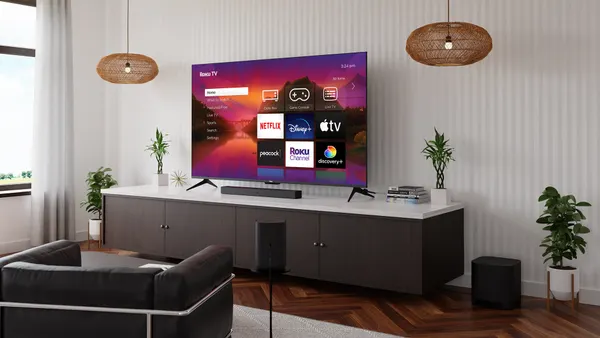Dive Brief:
- Amazon jumped into augmented and virtual reality with the launch of Sumerian, a web application that aims to let people develop 3-D experiences for a variety of platforms, according to VentureBeat.
- The browser-based tool includes a library of models developers can employ to customize characters that will interact with end users. Those customizable "host" characters integrate with artificial intelligence frameworks Amazon Polly and Lex, for natural language and bot capabilities similar to how the Alexa virtual assistant works.
- Developers can run Sumerian-created content on hardware such as HTC Vine, Oculus Rift and iPhone, and will soon also support Android devices that have ARCore, per VentureBeat.
Dive Insight:
AR and VR continue to evolve in sophistication as tech giants experiment and create ways for consumers and brands to participate in immersive experiences, even as the nascent space continues to show somewhat sluggish growth. One challenge in the space stems from the high cost and skills needed to develop these 3-D experiences, something Amazon's Sumerian tool aims to tackle. The web-based platform could open the door for other developers to take a swing at AR or VR, potentially making the emerging technology more accessible to a variety of brands.
Depending on how well it's perceived by developers, Sumerian could also position the e-commerce giant's Amazon Web Services as a major player in attracting game or 3-D app creators, while also potentially setting up the platform as a hub for future development and investment. In this light, Sumerian is the latest development in Amazon's growing strength as a digital platform reaching far beyond its e-commerce beginnings. Increasingly, Amazon is competing against the likes of Google, Facebook and Apple in hardware, software, advertising and services.
Meanwhile, full-blown VR still requires a significant amount of hardware and level of processing power, but less immersive technologies like AR and 360-degree video can be experienced with nothing more than a smartphone or even a browser window. And while AR and VR have been touted as the "next big thing," developments over the last few years have made it clear that this type of immersive content holds major marketing potential for brands to more deeply tell a story with compelling and memorable interactions.
Tools like Sumerian that make creating this content easier will likely only help to drive more VR and AR experiences for promoting film releases, games and product demos.












